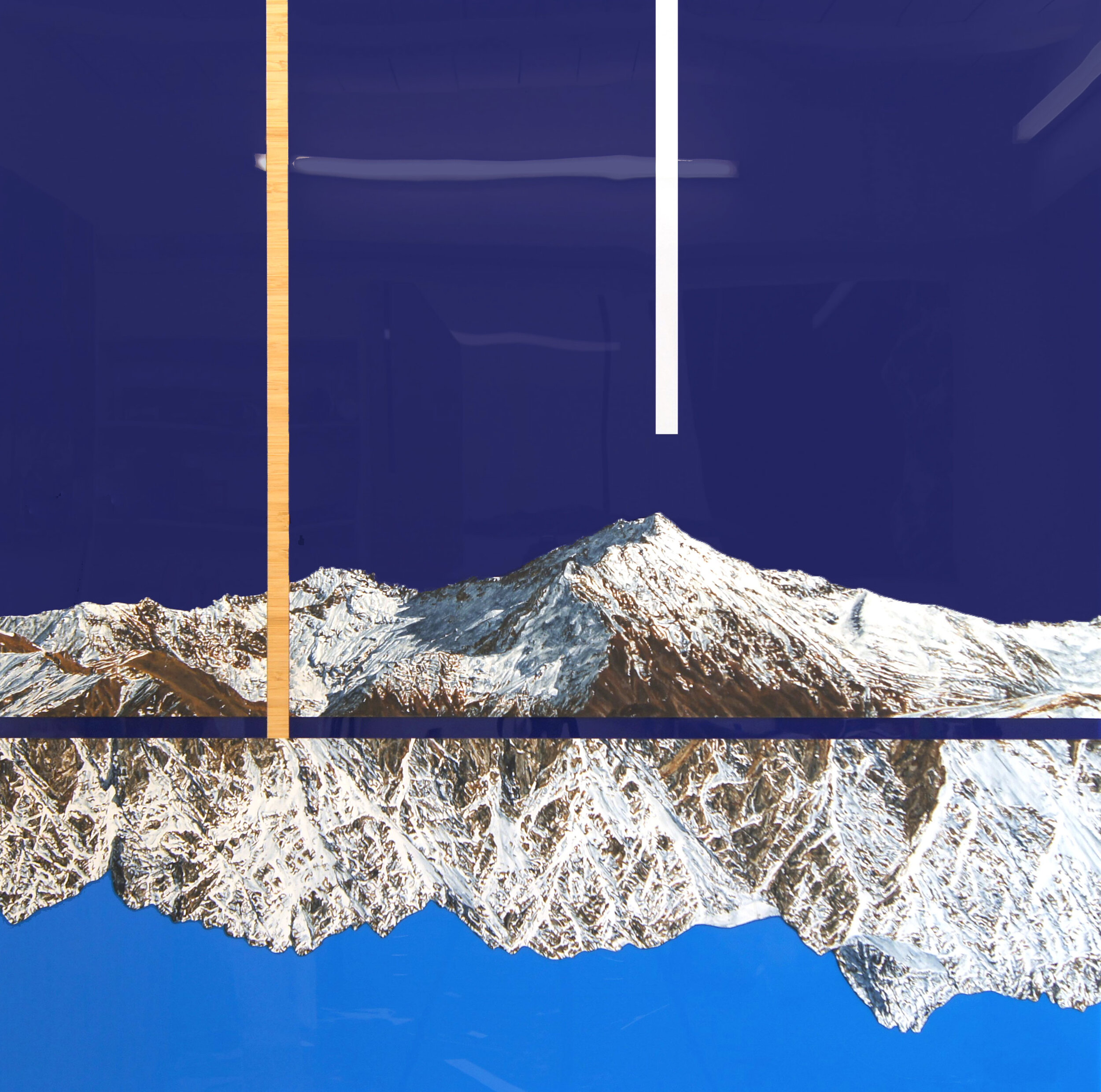3.5 billion years ago fossil records show that life began on Earth, more than 300 million years ago continental shifts began to form the landmass known as Pangaea, 7 million years ago the first human ancestors began walking on two feet and 70 years ago the Anthropocene began – the era in which human activities became the dominant force of change in the natural world.
With Pangaea Wellington-based artist Natchez Hudson creates an ambitious, daring and thought provoking vision of our world. Dramatically flipped, his mountains tower precariously on their edges in impossible configurations. They violently thrust into each other and out into the gallery space in tectonic inversions that reject the traditional presentation as the landscape as a site for nostalgia. From its use in the 19th century as a tool for colonial propaganda to the mid-20th century when landscape painting became a subject used to explore national identity, the genre has existed in Aotearoa as a proxy for human frustrations and desires. Forgotten in this is the autonomy of the land itself. With his work Hudson seeks to reassert a geological understanding of time, rather than a human one – the Earth existed before us and will exist long after we are gone. By re-orienting the landscape Hudson allows us to reimagine our relationship with it and through the incorporation of the third dimension and playful juxtapositions of scale the work does not allow us to remain at a comfortable distance.
In the contemporary context the landscape can be used in art to draw attention to the climate crisis and the precariousness of our current relationship with the environment. Human industry and consumption of natural resources has caused accelerated changes to the environment and the land has become a site for anxiety as our future becomes increasingly uncertain. Hudson says of this era:
‘No matter what we do to the planet during the Anthropocene, life itself will continue into the future in some form – what is at stake is the future viability of human civilisation. The indifference of the universe to our fate can sharpen the mind to the task at hand of solving climate change; we must act urgently for our own sake or all the achievements of all human civilisations will be lost, possibly without even leaving a mark in the geographic record. The precariousness of our existence and culture in the face of planetary time underscores the importance of urgent action on climate change.’
Sarah McClintock
Suter Curator



